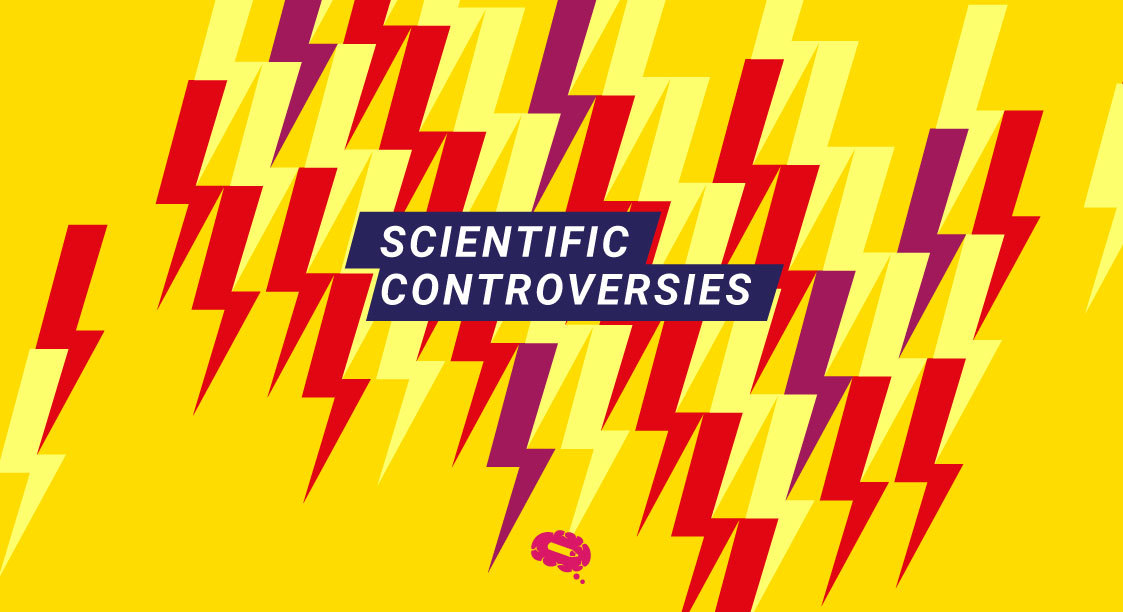Science is frequently regarded as a source of objective truth, where facts and evidence rule supremely. The reality, however, is far more complicated. Scientific controversies are not uncommon and can emerge in any field of study, from medicine to physics to environmental research.
These disagreements are generated by a number of variables, including contradictory facts, varying interpretations of evidence, and even personal biases. However, despite the sometimes heated nature of these debates, scientific controversies are an essential part of the scientific process.
Hva er vitenskapelige kontroverser?
Scientific controversies are disagreements or arguments within the scientific community about specific hypotheses, conclusions, or data interpretations. These debates can emerge in any scientific subject, ranging from basic concerns about the origin of the universe to more practical ones such as the safety and efficacy of medical treatments.
Motstridende informasjon, ulike tolkninger av bevis og til og med menneskelige fordommer kan alle bidra til vitenskapelige debatter. Selv om vitenskapelige debatter kan være omstridte og til og med opphetede, gir de også forskere en mulighet til å raffinere og forbedre sin forståelse av den naturlige verden gjennom grundig debatt og analyse.
Endelig bidrar vitenskapelige kontroverser i betydelig grad til å fremme vitenskapelig kunnskap og til å bevare objektivitet, åpenhet og åpenhet for kritikk og endringer.
De mest berømte kontroversene
Evolusjon
The theory of evolution is one of the most well-established and commonly accepted scientific theories, but it has also been the topic of controversy and dispute since it was originally suggested by Charles Darwin in the mid-19th century. The dispute over evolution is mostly driven by its collision with some religious views, notably those that adhere to a literal interpretation of the Bible’s creation account.
The subject of evolution’s mechanism is one of the most contentious issues. While most scientists believe that natural selection is the basic process by which evolution occurs, the relative contributions of other variables like genetic drift and mutation are currently being debated. Nevertheless, many issues concerning how new features emerge and are transmitted down across generations remain unresolved, leading to continuous disputes and disagreements among evolutionary scientists.
Kolonisering av verdensrommet
I flere tiår har forskere og beslutningstakere diskutert konseptet romkolonisering eller bygging av permanente menneskelige kolonier utenfor Jorden. Selv om ideen om romkolonisering vekker stor begeistring og entusiasme, er det også mange problemer og hindringer.
Gjennomførbarheten av kolonisering av verdensrommet er et av de mest omstridte spørsmålene. Selv om det har skjedd betydelige forbedringer innen romforskning og teknologi de siste årene, gjenstår det fortsatt mange utfordringer før kolonisering av verdensrommet kan bli en realitet. Blant disse er de høye kostnadene ved romfart, vanskelighetene med å opprettholde menneskelig eksistens i rommet og knappheten på ressurser og infrastruktur.
Kunstig intelligens
Kunstig intelligens (AI) development and application has been a source of debate within the scientific community, with some scientists viewing it as a transformative technology that will lead to significant advances in fields such as healthcare, transportation, and communication, while others are concerned about the potential negative consequences of AI and the ethical implications of its use.
The topic of explainability and interpretability is one of the most contentious scientific issues concerning AI. It can be challenging to grasp how AI systems make judgments as they get more complex and powerful. This is especially troublesome in fields such as healthcare and finance, where AI choices can have serious implications. Some experts think that AI systems should be developed in such a way that its decision-making processes are simple to explain and comprehend.
There is also a significant debate over the ethics and morality of AI. As machines grow more intelligent and autonomous, problems regarding how to design them to make ethical judgments arise. For example, if an autonomous vehicle is presented with the choice of protecting its passengers or pedestrians, how should it be programmed to make the decision? Concerns have also been raised concerning the possible use of AI in military applications and the development of self-driving weaponry.
Klimaendringer
Climate change is one of the most important concerns confronting the world today. While the vast majority of climate scientists agree that human activity, particularly the use of fossil fuels, is contributing to the planet’s rapid and potentially catastrophic warming, there are still disagreements and debates within the scientific community, as well as among policymakers and the general public, about the scope and severity of the problem, as well as the best ways to address it.
Et av de mest omstridte temaene er den pågående diskusjonen om hvor mye jorden vil bli varmere i løpet av de neste tiårene og århundrene, og hvor raskt oppvarmingen vil skje. Noen forskere mener at dagens klimamodeller er altfor optimistiske og at jorden kan bli varmere enn man tidligere har trodd, mens andre mener at de mulige konsekvensene av klimaendringene er overvurdert.
Livet utenfor jorden
En av de mest fascinerende og langvarige debattene innen astronomi og astrobiologi er hvorvidt det finnes liv utenfor jorden. Selv om det foreløpig ikke finnes noen sikre bevis for utenomjordisk liv, er det flere bevis og spekulasjoner som peker mot muligheten.
The vastness of the universe is one of the most compelling reasons for the possibility of extraterrestrial life. With an estimated 100 billion galaxies, each containing billions of stars, the likelihood of life emerging elsewhere in the universe appears to be very high. Furthermore, evidence suggests that the building components of life, including amino acids and organic compounds, are present in other areas of the solar system and beyond, implying that the conditions for life are more widespread than previously imagined.
However, there are various arguments why extraterrestrial life does not exist. One of the key reasons is the Fermi paradox, which presents the query, “If extraterrestrial life is common in the universe, why haven’t we seen any evidence of it?” This paradox means that the possibility of conscious life arising elsewhere in the universe is far lower than previously thought, or that sophisticated civilizations are uncommon or fleeting.
Visuelt tiltalende figurer for forskningen din
En av de viktigste fordelene med Mind the Graph is its extensive library of scientific illustrations and templates that span a wide range of scientific fields. Scientists can start with these illustrations and modify them to fit their needs, or they can build their own visuals from the beginning using the platform’s built-in drawing tools.


Abonner på nyhetsbrevet vårt
Eksklusivt innhold av høy kvalitet om effektiv visuell
kommunikasjon innen vitenskap.





